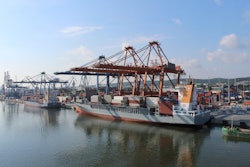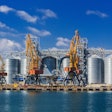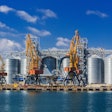
Therail strike may have been averted, butNational Grain and Feed Association (NGFA)President and CEO Mike Seyfert said during a Surface Transportation Board (STB) hearing on December 14 that the increased use of embargoes by theUnion Pacific (UP) Railroadimpacted his members in the grain industry.
STB ordered UP executives to appear at two days of hearings on December 13-14 regarding the railroad’s use of embargoes, noting it had received numerous reports that shippers were suffering supply chain problems as a result.
In 2022, UP issued more than 1,000 embargoes, compared to 662 embargoes in 2021 and 251 embargoes in 2020.
“We have no doubt UP is working hard to improve rail service, but we fear UP’s significant use of embargoes for so-called congestion that is largely the result of UP’s actions may be unfairly placing the cost burden of its rail service recovery on their rail shipper customers,” Seyfert said.
UP has drastically increased embargo usage since 2017
Through October, UP accounted for 79% of embargoes issued by the Class I railroads this year, with 98% of them attributed to “congestion,” according to the STB.
Railroads typically use embargoes as a temporary means to control traffic, but UP has dramatically increased its use of embargoes since 2017.
Multiple times in 2022, UP “metered” its service, or required customers to reduce the number of cars on the railroad or face embargoes.
Seyfert noted that the natural response for shippers when they receive slower rail service is to buy or lease additional private cars to offset the slower service and still move the amount of product their facilities require.
“If UP were providing the level of rail service that is needed by its customers, the additional private railcars would not be on its system,” he said.
Some improvements to service since last spring
After NGFA urged the STB to address substantialrail service disruptionsearlier this year, the board conducted a freightrail service hearing on April 26-27featuring a wide range of rail customers experiencing economic harm due to inadequate rail service.
The board subsequently ordered the four largest rail carriers, including UP, to submit service recovery plans.
“We aim to give credit where it is due, and we have seen some improvements in UP’s service since the STB hearing in April,” Seyfert said. “Despite these good faith efforts, the year-over-year numbers continue to show challenges for NGFA members.”
Slow service and embargoes have forced NGFA-member companies to make decisions that either lower their productive value or increase their transportation costs, ultimately negatively impacting the agricultural value chain, Seyfert noted.
“由于交通拥堵应该只允许禁运ted when the railroad is not the cause of the congestion it claims is the basis for an embargo,” Seyfert said. “Liberal declarations of embargoes and the metering of service should certainly not be embedded into a rail carrier’s business model.”
Seyfert joined several other stakeholder groups and agricultural shippers at the hearing.
More details on the hearing, including a full schedule of participants, are availablehere. Read Seyfert’sfull testimony here.





















